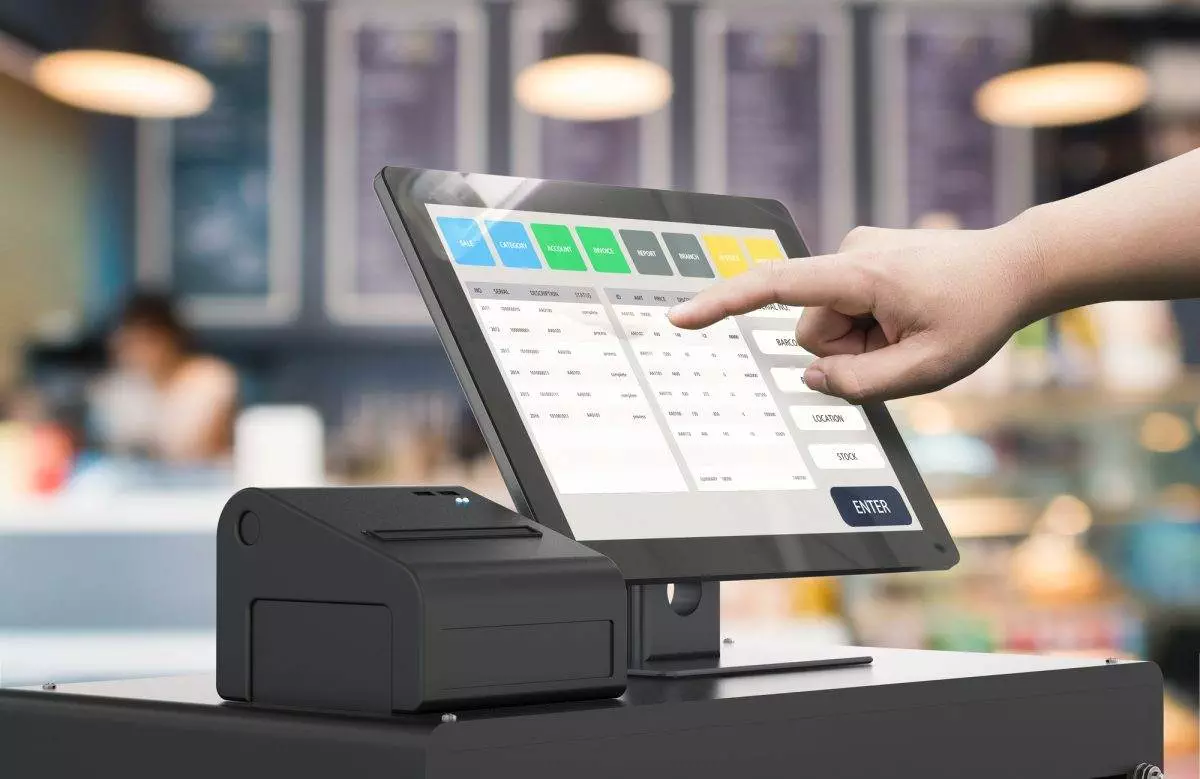POS, which stands for “Point of Sale,” refers to the physical or virtual location where a transaction or sale takes place between a customer and a business. It typically involves the exchange of goods, services, or both for payment. The Point-of-Sale system encompasses the hardware and software used to facilitate and process these transactions.
In a traditional brick-and-mortar store, the Point of Sale refers to the physical checkout counter or terminal where customers make their purchases. It typically includes a cash register or electronic payment terminal, barcode scanners or other means of product identification, and a receipt printer. The POS system allows the business to calculate the total cost of the items, apply any discounts or promotions, and accept various forms of payment, such as cash, credit cards, or mobile payments.

With the rise of e-commerce and online shopping, the concept of Point of Sale has expanded to include virtual or digital transactions. In an online store or e-commerce platform, the Point of Sale is the digital interface where customers add items to their cart, provide payment information, and complete the purchase. This can involve a website, mobile app, or even third-party platforms like PayPal or Stripe.
Modern Point of Sale systems often go beyond basic transaction processing and incorporate additional features. These may include inventory management, sales reporting and analytics, customer relationship management (CRM) capabilities, loyalty programs, integration with other business systems, and more. Such systems aim to streamline the sales process, enhance customer experience, and provide valuable data for businesses to make informed decisions.

Here are 10 reasons why businesses need a Point of Sale (POS) system:
1. Efficient Transaction Processing
A POS system automates and streamlines the checkout process, allowing for faster and more accurate transaction processing. It reduces human errors and minimizes time spent on manual calculations, enhancing efficiency and customer satisfaction.
2. Inventory Management
A POS system helps track and manage inventory levels in real time. It provides insights into stock levels, alerts for low inventory, and helps businesses avoid overstocking or stockouts. This ensures that popular products are always available, reducing lost sales and improving profitability.
3. Sales Reporting and Analytics
POS systems generate detailed sales reports and analytics. Businesses can analyze sales patterns, identify top-selling products, measure performance, and make data-driven decisions. This information is crucial for inventory planning, marketing strategies, and overall business growth.
4. Employee Management
A POS system can track employee performance, including sales figures and customer interactions. It simplifies scheduling, manages clock-ins and clock-outs, and helps businesses monitor and reward employee productivity. This promotes accountability and efficient staff management.
5. Enhanced Customer Experience
POS systems enable businesses to provide faster and more personalized service to customers. They can process transactions quickly, access customer purchase history, offer tailored discounts or promotions, and even manage customer loyalty programs. This leads to improved customer satisfaction and loyalty.
6. Integrated Payment Processing
A POS system integrates with various payment methods, including credit cards, debit cards, mobile payments, and digital wallets. It ensures secure and seamless payment processing, reducing the risk of errors or fraud. This convenience encourages customers to complete transactions.
7. Streamlined Accounting
POS systems simplify accounting processes by automatically recording sales and transaction data. They generate accurate financial reports, track revenue, and reconcile cash flow. This saves time on manual bookkeeping tasks and helps ensure accurate financial records.
8. Scalability and Expansion
A robust POS system can scale with business growth. It can handle increased transaction volumes, support multiple store locations, and integrate with other systems like e-commerce platforms. This flexibility allows businesses to expand their operations seamlessly.
9. Compliance and Security
POS systems are designed to comply with industry regulations and security standards. They help protect sensitive customer data, prevent fraud, and maintain PCI (Payment Card Industry) compliance. This reassures customers that their information is secure, building trust and credibility.
10. Integration with Business Tools
POS systems can integrate with other business tools like customer relationship management (CRM) software, accounting software, and marketing platforms. This integration enables businesses to streamline operations, gain a holistic view of their business data, and leverage automation for improved efficiency.
POS systems can integrate with other business tools like customer relationship management (CRM) software, accounting software, and marketing platforms. This integration enables businesses to streamline operations, gain a holistic view of their business data, and leverage automation for improved efficiency.

Overall, a Point-of-Sale system is a valuable tool for businesses of all sizes, offering numerous benefits such as improved efficiency, accurate inventory management, data-driven decision-making, enhanced customer experience, and secure payment processing.
Activerify is a leading custom software developer in Cambodia and offers custom Point of Sale (POS) software solutions. Custom POS software can be highly beneficial for businesses as it can be tailored to meet specific requirements and industry needs. It allows businesses to have a POS system that aligns perfectly with their processes and helps streamline operations.

When considering a custom POS software solution, it’s essential to ensure that it offers key features such as efficient transaction processing, inventory management, sales reporting and analytics, integrated payment processing, and scalability. Customization options should also include the ability to integrate with other business tools and provide a user-friendly interface.
Additionally, Activerify’s expertise in custom software development can provide businesses with the advantage of having a solution that is tailored to their unique needs and business goals. It’s important to discuss requirements, functionalities, and specific business needs with Activerify to ensure that the custom POS software solution aligns with your business objectives.

Engaging with a reputable software development company like Activerify can provide businesses with a reliable and effective custom POS software solution to optimize their operations and enhance customer experiences.
What’re you looking for? Let contact our friendly staff today for special discount: +855 (0) 88 6000 321 or email us: Contact Us


